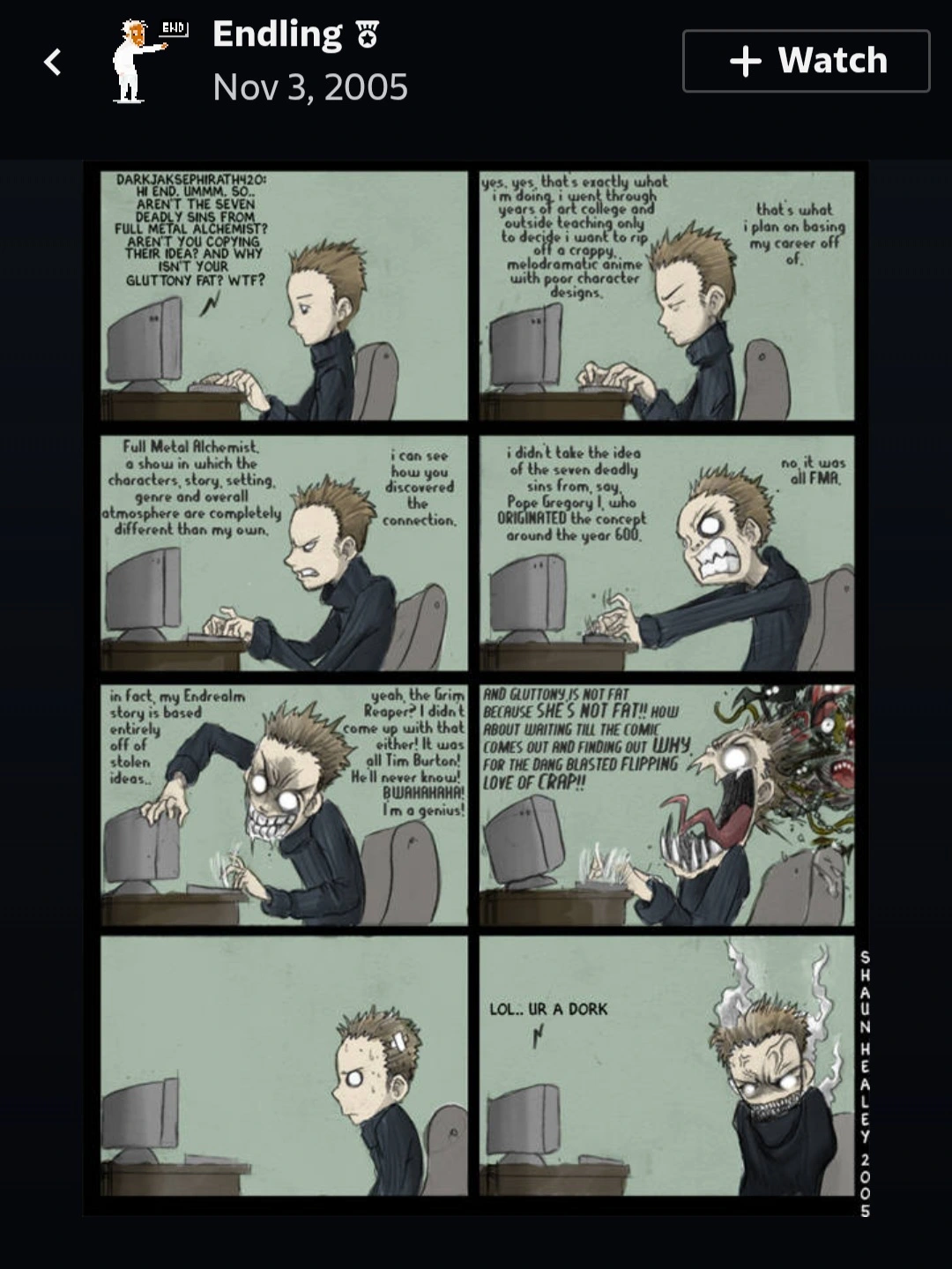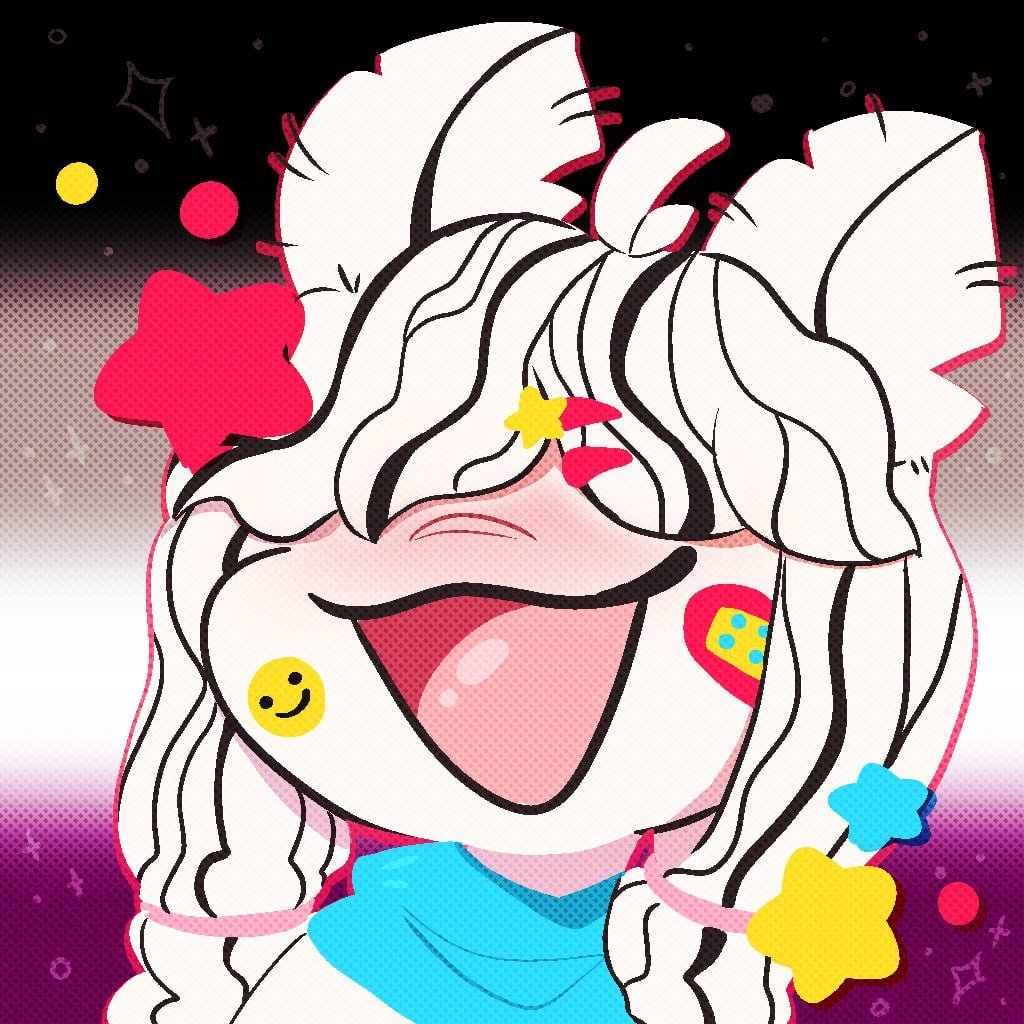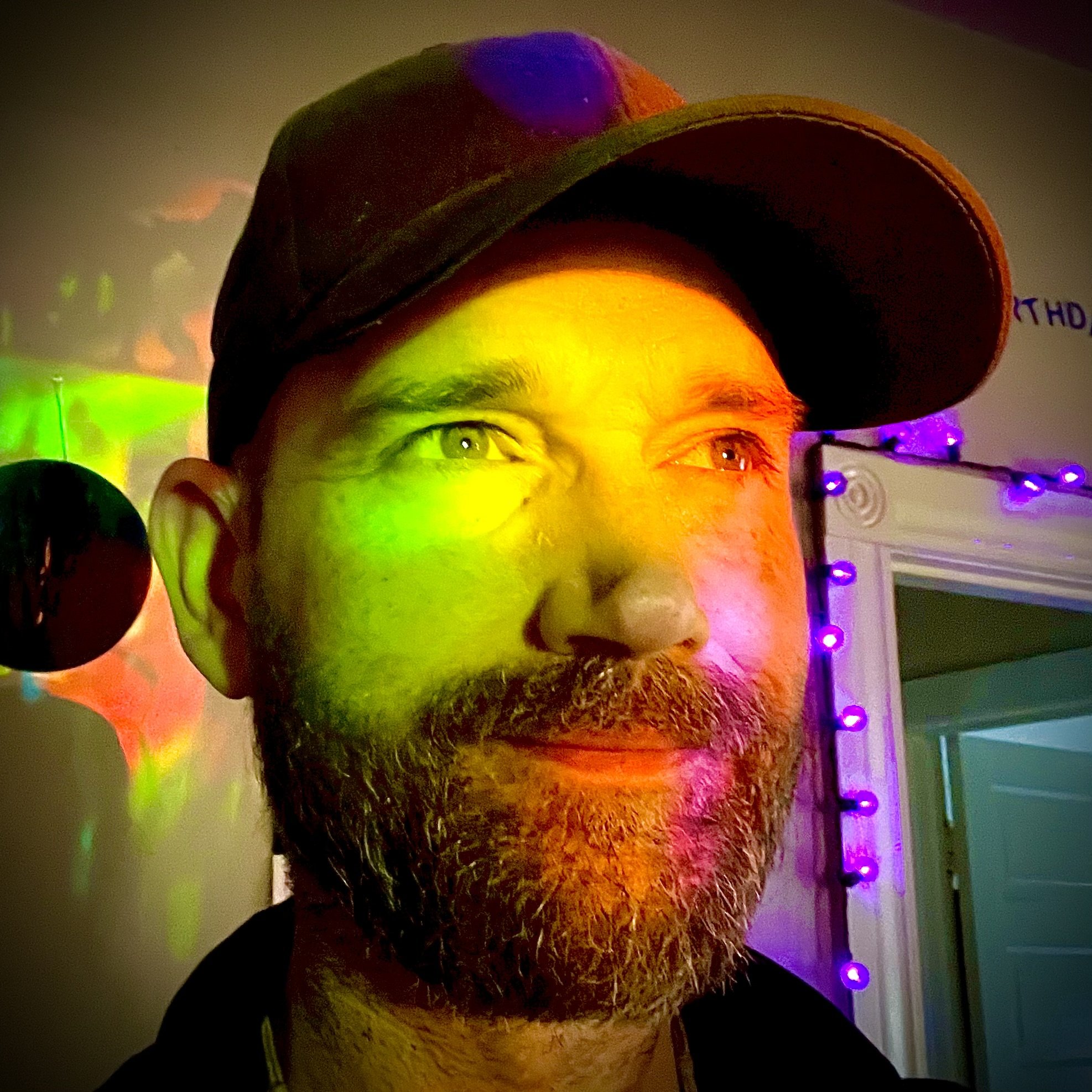The emergence of social media has destroyed all the small communities to standardize communication and information.
It’s a bit of a digital version of rural exodus. And since 2017/2018, I’ve noticed that everything that, in my opinion, represented the internet has disappeared.
I’ve known Lemmy for a few hours and I feel like I’m back in the early spirit of the internet.
You don’t consider Lemmy to be social media?
For me, “Social Media™” requires algorithm based media to be delivered to you without your input and heavy advertisement model attached that introduces corptate bias.
Lemmy is more like a fancy forum. Not quite the same as old bbs forums, but still better then twitter, facebook and whatever the hell reddit is becoming.
No, not the only one -
The internet is just a microcosm of social media’s destruction of our entire social fabric
The early Internet was social media, but it wasn’t so corporatized to the point of being ruined.
To expand on that, all media with a negligible barrier to entry is social media. Which describes the internet as a whole. The commodification of such media is both unnecessary and parasitic. The only thing “social media” adds is accessibility.
Social media, at it’s heart, is inevitable. We will always find a way to share pictures, information, videos, etc. with each other. It’s such basic functionality when you really think about it. We’re social creatures and this is the most important thing we would do with technology.
The issue is specifically with platforms; how they consolidate power and who owns them.
I don’t know what to do about it, it’s one of the biggest problems we are going to continue to face in our time. I can’t really armchair solutions for it now, but I think it’s of the utmost importance that we recognize it and discuss it.
Social media is not inherently bad, it’s the platforms.
Exactly. The internet was always social, connecting people. Capitalism and greed have ruined the internet.
I don’t care if people want to make money, and I’m even fine with ads (within reason) but all this ExTrAcTiNg VaLuE is making the Internet unusable and damaging humanity.
Social media is a great idea, honestly. What’s ruined it is the same thing that ruins everything - money men.

Give me back my ICQ and Prodigy Internet you damned Gen Z!
My nickname back in high school.
social media has destroyed the spirit of the internet?
I’ve known Lemmy for a few hours and I feel like I’m back in the early spirit of the internet.
I mean, Lemmy is social media. You might dislike centralized social media or something, but…
Yeah its definitely just you…
https://medium.com/@darianoneil/because-the-internet-how-social-media-ruined-music-ec2022282aa4
https://listverse.com/2021/05/24/top-10-ways-social-media-is-ruining-the-world/
https://www.theatlantic.com/technology/archive/2024/01/long-youtube-videos-tiktok/677130/
https://knowyourbest.com/social-media-ruined-society/
https://greatergood.berkeley.edu/article/item/how_social_media_brings_out_the_worst_in_us
If it’s just the op, then where did all these articles come from!? Social media for ants!?
Small forums always did exist and always will exist. That cannot and will not change
This is true, though internet gatekeepers can keep people from being able to find these forums.
The extent to which that’s possible is debatable.
I think it’s simply that there’s less incentive to find or to host those small forums.
Social media brought all the normies into the internet. Normies ruin everything.
Same reflection
Social media back then was making stuff you thought was cool and having friends and other weirdos across the Internet also enjoying the same things as you.
Social media today is juicing the algorithm to generate the most views, regardless of whether you like the content you’re producing or not.
The algorithm(s) and “For You” pages I think have done more damage to my ideal internet than anything else ever has.
I have a feeling that someday in the future we’ll also see that the algorithm was also responsible for damage to the human mind and society as well.
Social media back then were also referred to as social NETWORKS. A network implies collaboration and interactivity, media are more linear, having a sender and a recipient.
Im talking further back before people started calling them “social networks”.
Not social media per sé, but definitely “the algorithm” that was introduced around ~2014 and has been tweaked by the likes of Cambridge Analytica to now provide us with endless ragebait.
MySpace was social media and had none of the toxicity.
Exactly. The algorithm is literally designed to stop people from thinking about what they actually care about. Of course that has caused deterioration of every aspect of human society to some degree.
Truth. We need to massively regulate social media. If I had my way, I would prohibit any large social media site from offering any kind of content stream algorithmically targeted to a single user.
This wouldn’t be a restriction on speech. You could still have your website and publish whatever you wanted. You could still have sites where people can upload user content. But something like YouTube would look far different. YouTube could have one main page of content they show everyone, but they couldn’t have individual feeds for individual users. If you wanted to find content not on the main page, you would have to find it yourself. You would have to find channels, subscribe to them, share recommendations with friends, etc. If people want to create their own curated content feed, that’s fine. But they have to be the ones that do it.
We don’t even need to ban social media. What we need to completely ban is individually-targeted algorithmic content. That’s what’s lead us to the insanity we are currently experiencing. And this should apply to everyone, not just kids. If anything adults need this more than kids do.
MySpace was social media and had none of the toxicity.
Usenet was Social Media and it had allllll the toxicity.

Randall published this on February 20, 2008.
You just gave me the biggest flashback to a comic made by Endling.

What a blast from the past.
I like very much the comparison you made of a rural exodus; inspiring!
The internet has always been a collection of social media platforms: bulletin boards, Usenet, IRC, people hosting little personal sites and making contact with each other via email, etc. It got bad when big money arrived and brought in the general public. First is was platforms like AOL’s chat rooms and forums, and later things like Facebook and Twitter. We are all living in eternal September now.
Exhibit A: this t-shirt from 1994

What was the state of the internet in 1994 that it would cause such resentiment?
“A cultural phenomenon during a period beginning around late 1993 and early 1994, when Internet service providers began offering Usenet access to many new users.”
"The flood of new and generally inexperienced Internet users directed to Usenet by commercial ISPs in 1993 and subsequent years swamped the existing culture of those forums and their ability to self-moderate and enforce existing norms. AOL began their Usenet gateway service in March 1994, leading to a constant stream of new users.
Hence, from the early Usenet community point of view, the influx of new users that began in September 1993 appeared to be endless."
I think that you left out the part that explains why it’s called September. Every year, when first-year university students got their hands on the internet for the first time, they would rampage through the noble message boards with their barbarian netiquetteless ways. Many dreaded the annual influx of newbies, and their worst nightmares were finally realized when the internet was opened up to the greater public.
Eternal September refers to September 1993, when a popular internet service provider (AOL) provided easy access to Usenet for its users, which immediately threatened the existing culture and lowered the quality of discourse.
Before this, September was only a temporary problem as a new batch of college freshman would arrive and be unaccustomed to the place.
My reflection on that period would lead me to suggest it was the mass “normie” invasion of nerd-space and the promotion of low-effort participation. I don’t remember anything specific about that particular timeframe, though.
The internet was better when it wasn’t big enough to be worth monetizing. And the signal to noise ratio has generally grown exponentially with participation. Which makes sense if you think about it.
My reflection on that period would lead me to suggest it was the mass “normie” invasion of nerd-space and the promotion of low-effort participation. I don’t remember anything specific about that particular timeframe, though.
So ultimately the sentiment has never changed?
94 was when it really took off and the hoi polloi started tuning in.
https://ourworldindata.org/internet
Be easy to make an argument for a few years later, but 1994 has always stuck in my mind as the take off point. By then there were “information superhighway” items all over the news, everybody got AOL disks, Windows 95 was right around the corner to take the pain out of PCs, stuff like that. That’s the year I’d point to and say the internet was no longer a nerd thing.
1994: I was still fiddling with a 286 (WITH a math coproccesor I installed!), way beyond my skills at the time. LOL, my gf and I had to drive across town a beg a local IBM guy to give us a copy of the BIOS on a floopy when ours crash. He acted like Neo giving Choi the disk, “Yeah, I know. This never happened. You don’t exist.”
The nerds got their wish granted in the most monkeys-paw way possible. For 20 years or so, computer nerds were trying to tell everyone about the internet. They saw the potential and what it could be. They were early adopters, and they wished that everyone could appreciate this wonderful thing they had discovered or helped invent.
Well, they got their wish…
Everyone clustered on like 4 websites for convenience, and then browsing the internet started to feel like wandering around different sections of the same department store: sterile, corporate, advertiser-safe, and everything’s transactional. Plus, it made it incredibly easy for any party that wants to astroturf public opinion, because now they only have to set up shop on a few sites: botting comments, infiltrating moderator positions, abusing the algorithms.
We desperately need to break the internet’s monoculture, and I think federated social media like this is a great start.
The real problem - how do you deal with bots? Sure, we could start a new nerd movement to say, revive web rings and personal websites. But with LLMS and other AIs, how do you keep that whole ecosystem from just being flooded with AI content?
I honestly don’t know. It’s going to be a big problem. LLMs are capable of having this exact convo we’re having without giving away the game.
Some sort of personal vouching system? Ever changing “human tests”? I’m not sure it’ll be enough.
Not the only one, but it’s the walled garden platform approach.
The idea (from around 2010ish) was that every platform is an app and every app is everything. A company buys up other smaller companies until you have a payment system, a marketplace, a VOIP system, advertising, job posting boards, 4 different waya to share media, etc. etc.
While the tech world sold this as, and actually viewed this as, some organic online super village, it wasn’t. It was a series of shit stripmalls adjacent to a Walmart in a shitberg town on a big freeway linking other shiberg towns with Walmarts. Sterile, restrictive, one size fits all dipshits kind of garbage. There’s a kind of person that thrives in the parking lots of Walmarts and stripmalls in shitberg towns, and they thrive on social media, too.
Lemmy reminds me more of early internet as well, but also refined by the common language of those platforms as a common starting point. It’s a niche, and it’s not for everyone. But it is for you, welcome.
The idea (from around 2010ish) was that every platform is an app and every app is everything. A company buys up other smaller companies until you have a payment system, a marketplace, a VOIP system, advertising, job posting boards, 4 different waya to share media, etc. etc.
You’re describing AOL. This is nothing new. And just as AOL failed and faded, so will the social media giants.
I understand what you’re saying, but AOL had the opposite problem. The internet at that time was hard to use in general, so it was more about trying to provide enough of anything to get commercial viability for regular people. At one point, AOL was 30% of the entire internet. Seriously, it hosted almost a third of everything online. The alternatives were CompuServe or Prodigy or simply not being online at all. But you paid for it up front as an ISP. AOL didn’t provide anything for free up front.
The Web 2.0 walled garden approach is about preventing you from wandering out onto the wide open spaces of the rest of the internet out there and not seeing the content curated to make the platform provider money. And making the 10% of daily internet content composed of idiotic FB comments and posts seem like it’s worth all your time when you can easily use one of 5 or 6 search engines to find alternative content. Making staying in the garden so cost effective and frictionless that even using a search engine seems “hard” to do.
There’s a kind of person that thrives in the parking lots of Walmarts and stripmalls in shitberg towns, and they thrive on social media, too.
Well put. I’m old school Tripod days (if anyone remembers what that was). I’ve seen social media go from “A/S/L?” to “like & subscribe” and everything in between. It was never that clean, and the lot lizards were always lurking.
















